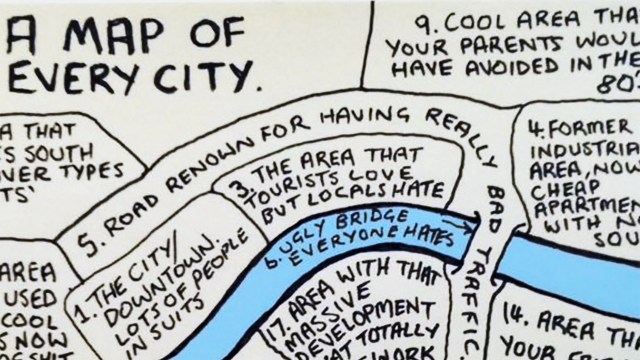Facebook Isn’t about Connecting Friends — It’s about Amassing a Network of Ideas

We keep our groups of friends small in real life and online, according to a study published in The Royal Society Open Sciencejournal. While the counter on our Facebook page may have us at over 100 friends, we only have the ability to maintain four to 14 of those relationships. Anything beyond that would be a drain on our time and mental wellness.
The numbers 150, 50, 15, and five are the four that make up Robin Dunbar’s rule of friendships. He works as an anthropologist, studying social networks. He says any grouping larger than about 150 casual friends starts to strain the cognitive capacity of the human brain. But close friends — the ones we call for emotional support — we can only really manage around five of those.
Dunbar breaks down how our network of friends really work at a TEDx Talk:
“Creating friendships is very expensive in terms of time: To keep a friendship you have to invest a lot of time in the person, otherwise the friendship will inexorably decline in quality,” Dunbar wrote to The Huffington Post.
Social networks give “us additional ways of interacting, but I don’t think it fundamentally changes friendship, romance, love, violence, all these very deeply human traits,” says social scientists Nicholas Christakis.
“Friendships, in particular, have a natural decay rate in the absence of contact, and social media may well function to slow down the rate of decay,” he wrote. Dunbar believes face-to-face meetings are necessary to reinforce that close friendship with another person.
The collection of “friends” we amass on Facebook is more of a diverse informational broadcasting network. Especially if you have a politically diverse network of friends. Facebook has the capacity to be a stream of diverse ideas and opinions (some more agreeable than others), which helps us from locking ourselves into an ideological bubble, granting us entry to see from another person’s point of view.
***
Photo Credit: PHYO MG MG / Stringer / Getty
Natalie has been writing professionally for about 6 years. After graduating from Ithaca College with a degree in Feature Writing, she snagged a job at PCMag.com where she had the opportunity to review all the latest consumer gadgets. Since then she has become a writer for hire, freelancing for various websites. In her spare time, you may find her riding her motorcycle, reading YA novels, hiking, or playing video games. Follow her on Twitter: @nat_schumaker





